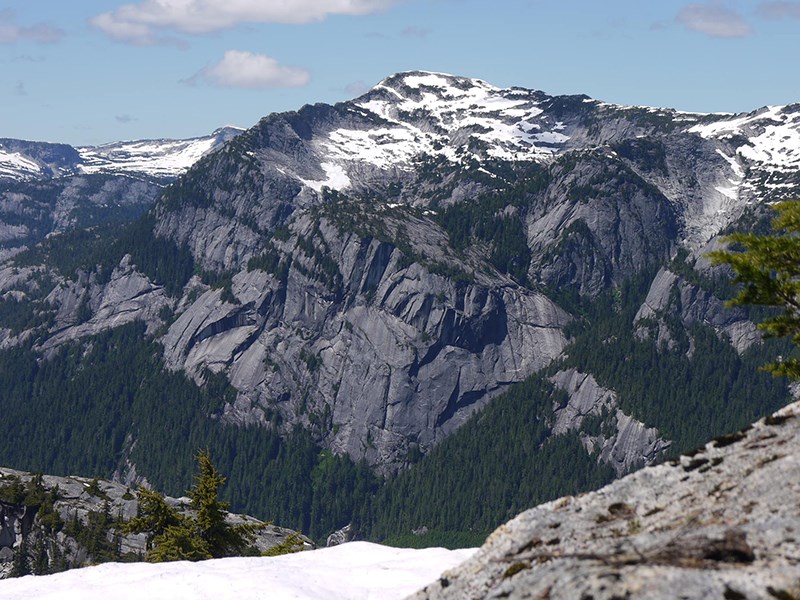Members of the local rock climbing community are working with representatives of Western Forest Products (WFP) to ensure trail access to a popular climbing spot in the Eldred Valley.
The trail runs through one of the forestry company’s old-growth cut blocks that is scheduled for logging in 2018, according to WFP director of communications Amy Spencer.
Climbers’ Access Society of BC representative and local resident Christie Dionne recently met with WFP. Dionne helped build the access trail in 2008 and said she is against logging the area.
“It would be nice to see that old-growth stand stay in place as it is, because it is an intact, old-growth ecosystem, which is not easy to find nowadays,” said Dionne. “It’s also very, very steep, so rehabilitating that trail, or even a portion of it, is going to be very difficult once the falling has been done.”
Spencer said the company is willing to work on a solution to the trail location, which is on the face of a wall deemed “Amon Rudh” by local climbers.
“We have committed to GPS traversing the trail in order to know the exact location, as well as providing topographical maps of the area to the climbing community so other trails and climbing areas can be accurately mapped out,” said Spencer.
Climbers in the area, which is located north of Goat Lake between Powell and Emma lakes, became alarmed about how soon the area might be logged when WFP dropped off crews by helicopter to assess the cut block on Thursday, September 29.
“We were just doing some work laying out boundary ribbons and some assessment work,” said Darwyn Koch, WFP operations planner for Tree Farm Licence 39 block 1. “A geotechnical engineer was also looking at the soils. In this case, logging is about a year and a half out, and that’s the plan as of today.”
The cut block in question, EL-681, is about 10 hectares in size and the total area is divided between five small openings on the steep rock face.
Robert Richards, a local climber who said he has extensive experience in the forestry industry, cited logging in the Eldred Valley as just one example of industry’s negative impact on recreational activities.
“It’s always been that they just do what they want and that extends to ignoring the obvious, which is the potential for this area to draw world-class climbers who come from all over the place,” said Richards. “Unfortunately, when these climbers get here they are faced with industrial abuse in the backcountry.”
An online petition against logging activity in the area touts the Eldred Valley as a world-class rock climbing and alpine mountaineering site on par with the Yosemite Valley. It states that logging in the area has threatened access since the early 1980s and asks for support “to convince [WFP] to stop logging the last remaining old-growth forest and destroying established industrial access to public lands.”
Koch said a flurry of online activity around the potential logging was premature and WFP has had a long history of communicating with the public and recreational groups in Powell River before logging begins.
“As the development of this block is in its infancy, it is subject to change based on many factors, including the geo-tech engineer’s recommendations, terrain stability and negotiations with first nations and other users, such as the rock climbing group,” said Koch. “The block shape and configuration today may or may not be the harvest area that will eventually be submitted to government for approval.”
Dionne said since the climbers share the Eldred Valley with WFP, she is interested in meeting with the company regularly so the best solution for all parties can be reached.
“I’m excited to work with them to get our climbing trails into their system, so there’s less conflict,” said Dionne. “I’d rather work positively with the logging companies because we do share the same valley, and having them willing to work positively with us is a bonus.”
WFP Tree Farm Licence 39 block 1 is a working forest on Crown land. The company’s tenure has been in existence since 1961.



